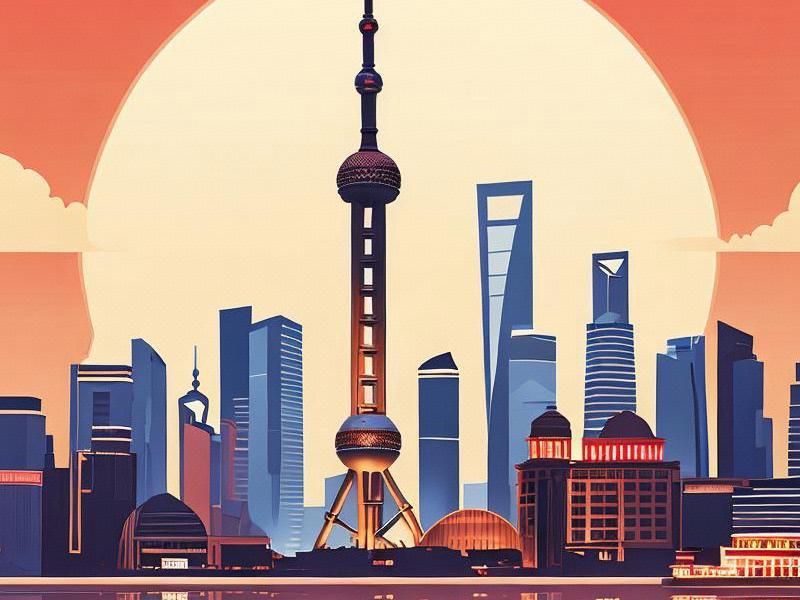This article delves into the vibrant and multifaceted culture of Shanghai, exploring how this global metropolis seamlessly blends its rich historical heritage with cutting-edge modernity. Shanghai, often referred to as the 'Pearl of the Orient,' stands as a testament to China's rapid urbanization and cultural evolution.

Nestled along the banks of the Huangpu River, Shanghai is not just a city; it's a living, breathing cultural phenomenon. This dynamic metropolis, with its skyline punctuated by the iconic Oriental Pearl Tower and the futuristic Shanghai Tower, is a place where the old and the new coexist in a harmonious dance. The city's culture is a tapestry woven from threads of tradition and innovation, reflecting the broader narrative of China's transformation over the past century.
The cultural identity of Shanghai is deeply rooted in its history. Once a modest fishing village, Shanghai rose to prominence in the 19th century as one of the first treaty ports opened to foreign trade following the First Opium War. This period of opening up brought an influx of Western influences, which have since been integrated into the city's unique cultural fabric. The Bund, with its colonial-era architecture, stands as a poignant reminder of this era, while the nearby Yu Garden, a classical Chinese garden, offers a glimpse into the city's ancient roots.
Shanghai's culinary scene is a microcosm of its cultural diversity. The city is renowned for its "Shanghai cuisine," characterized by its sweet and savory flavors, and its use of fresh ingredients. Dishes such as Xiaolongbao (soup dumplings) and Shengjianbao (pan-fried buns) are not just meals; they are culinary experiences that tell stories of the city's history and its people's ingenuity. Beyond the traditional, Shanghai's food scene is also a hub for international cuisine, reflecting the city's status as a global crossroads.
上海龙凤419社区 The performing arts in Shanghai are another facet of its vibrant culture. The city is home to the renowned Shanghai Grand Theatre, a state-of-the-art venue that hosts a wide array of performances, from classical Chinese opera to contemporary ballet and music concerts. Traditional forms like Peking opera and Kunqu opera continue to thrive here, preserved by dedicated artists and institutions. At the same time, Shanghai's nightlife scene is a vibrant mix of clubs, bars, and live music venues, offering a space for the city's youth to express themselves and embrace the modern world.
Art and fashion in Shanghai are in a constant state of flux, reflecting the city's innovative spirit. The M50 Creative Park, located in the former factory district of Yangpu, has become a haven for contemporary art, housing numerous galleries and studios. This area, once a symbol of industrial decline, has been transformed into a beacon of cultural vitality, attracting artists and art enthusiasts from around the globe. Shanghai Fashion Week, one of the most prestigious fashion events in Asia, showcases the latest trends and designs, blending traditional Chinese elements with international styles.
Education plays a pivotal role in shaping Shanghai's cultural landscape. The city is home to some of the most prestigious universities in China, including Fudan University and Tongji University, which attract students and scholars from all over the world. These institutions are not only centers of academic excellence but also hubs of cultural exchange, fostering a spirit of curiosity and innovation among their diverse communities.
上海贵人论坛
Shanghai's commitment to preserving its cultural heritage is evident in the numerous museums and cultural centers scattered throughout the city. The Shanghai Museum, with its extensive collection of Chinese art, is a must-visit for anyone interested in the country's rich artistic traditions. The Shanghai Urban Planning Exhibition Center provides insights into the city's urban development and its vision for the future, highlighting the balance between growth and preservation.
The city's cultural vibrancy is also reflected in its festivals and public celebrations. The Shanghai International Film Festival, one of the oldest and most prestigious film festivals in Asia, attracts filmmakers and cinephiles from around the world. The Dragon Boat Festival, celebrated with great fervor, is a time when the city's residents come together to honor their heritage through traditional activities and delicious food.
爱上海 Shanghai's position as a global financial hub further enhances its cultural significance. The city's skyline, dominated by the iconic skyscrapers of Lujiazui, is a symbol of its economic prowess and global influence. Yet, amidst the concrete and glass, there are reminders of the city's more humble beginnings, such as the Old Town area of Zhabei, which retains much of its traditional charm.
The people of Shanghai are the heart and soul of the city's culture. Known for their entrepreneurial spirit and cosmopolitan outlook, Shanghainese are a proud and resilient community. They take pride in their city's achievements while remaining deeply connected to its cultural roots. This sense of identity and belonging is what makes Shanghai's culture so unique and compelling.
In conclusion, the vibrant culture of Shanghai is a testament to the city's ability to adapt and evolve while preserving its rich heritage. It is a place where the past and present converge, creating a dynamic and ever-changing cultural landscape. Whether you're savoring a bowl of soup dumplings, admiring a traditional Chinese painting, or enjoying a night out at a trendy bar, Shanghai offers an unforgettable cultural experience that is truly one of a kind.
As Shanghai continues to grow and develop, its culture will undoubtedly remain a vital part of its identity, attracting visitors and residents alike who are eager to explore and be a part of this extraordinary city. The story of Shanghai is not just a story of urbanization and economic success; it is a story of cultural resilience and innovation, a story that continues to unfold with each passing day.